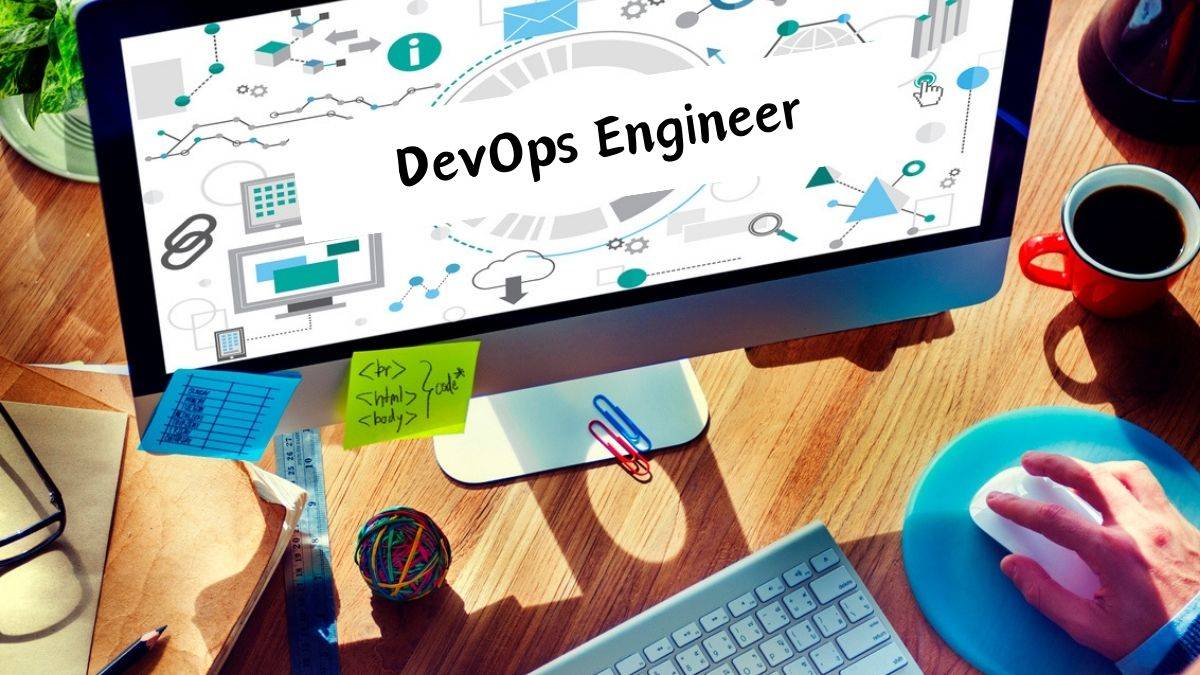DevOps Engineer Online Courses & Certifications
DevOps Engineer online courses offer a valuable pathway for professionals seeking growth, lucrative job opportunities, and career advancement. These courses equip learners with essential skills in automation, infrastructure management, and continuous integration/continuous deployment (CI/CD), making them highly competitive in the job market.
By completing these programs, individuals can enhance their expertise, increase their earning potential, and achieve significant career milestones in the DevOps industry.
What is a DevOps Engineer?
A DevOps Engineer is a professional who bridges the gap between software development and IT operations. They use a combination of coding, automation tools, and process management to streamline the development, testing, and deployment of software. DevOps Engineers also ensure that systems are scalable, reliable, and maintainable.
Their role is cruci
DevOps Engineer online courses offer a valuable pathway for professionals seeking growth, lucrative job opportunities, and career advancement. These courses equip learners with essential skills in automation, infrastructure management, and continuous integration/continuous deployment (CI/CD), making them highly competitive in the job market.
By completing these programs, individuals can enhance their expertise, increase their earning potential, and achieve significant career milestones in the DevOps industry.
What is a DevOps Engineer?
A DevOps Engineer is a professional who bridges the gap between software development and IT operations. They use a combination of coding, automation tools, and process management to streamline the development, testing, and deployment of software. DevOps Engineers also ensure that systems are scalable, reliable, and maintainable.
Their role is crucial in promoting a culture of continuous integration and continuous delivery (CI/CD), enhancing collaboration between development and operations teams, and ensuring that infrastructure is efficient and secure.
Roles and Responsibilities of a DevOps Engineer
Automation
Automate repetitive tasks to increase efficiency and reduce the possibility of human error.
Infrastructure Management
Manage and provision infrastructure using tools like Terraform, Ansible, or CloudFormation.
Continuous Integration/Continuous Deployment (CI/CD)
Implement and maintain CI/CD pipelines to automate the testing and deployment of applications.
Monitoring and Logging
Monitor system performance and logs to ensure the health and performance of applications and infrastructure.
Security Implementation
Implement security best practices to protect systems from vulnerabilities and attacks.
Collaboration with Development Teams
Work closely with development teams to understand requirements and provide necessary infrastructure and tools.
Performance Optimization
Optimize system performance and ensure efficient use of resources through best practices in configuration and management.
Disaster Recovery
Develop and implement disaster recovery plans to ensure business continuity.
Staying Updated with Industry Trends
Keep abreast of the latest DevOps tools, trends, and best practices.
DevOps Engineer Salary
DevOps engineer salary in India varies based on factors such as experience, location, and industry. On average, DevOps engineers can expect competitive compensation that reflects their expertise and responsibilities. Here is the breakdown of DevOps engineer salary based on experience.
| Experience Level |
Average Total Compensation (per year) |
| Entry-Level (0-3 years) |
₹4,00,000 |
| Mid-Career (4-9 years) |
₹8,50,000 |
| Senior-Level (10-20 years) |
₹14,00,000 |
| Late Career (20+ years) |
₹18,00,000 |
Skills Required to Become DevOps Engineer
| Description | Details |
|---|---|
| Coding and Scripting | Ability to write code and scripts for automation and integration. |
| Cloud Services | Experience with cloud platforms like AWS, Azure, or Google Cloud. |
| Configuration Management | Skills in managing infrastructure configuration using tools like Ansible, Chef, or Puppet. |
| Continuous Integration/Continuous Deployment (CI/CD) | Ability to design and implement CI/CD pipelines. |
| Networking | Understanding of networking concepts and protocols. |
| Monitoring and Logging | Proficiency in monitoring tools like Prometheus, Grafana, or Splunk. |
| Version Control/Git | Experience with version control systems like Git for collaboration. |
| Problem-Solving Skills | Ability to troubleshoot and resolve issues in complex systems. |
| Collaboration and Communication | Clear and effective communication of technical information to stakeholders. |
| Attention to Detail | Precision in configuration and monitoring to ensure high-quality systems. |
| Technology Proficiency | Proficiency in DevOps tools and software for efficient system management. |
Top Certifications to Become a DevOps Engineer
- Linux for Cloud & DevOps Engineers Offered by Udemy
- DevOps Engineer Offered by Simplilearn
- Professional Cloud DevOps Engineers Offered by Google Cloud
- IBM Applied DevOps Engineering Professional Certificate Offered by Coursera
- Git and GitHub for DevOps Engineers Offered by Udemy
- DevOps Engineering - Git, GitHub, Maven, JUnit, Log4j Offered by Udemy
Online DevOps engineer courses offer a flexible and accessible path to advancing your career in DevOps. These programs provide comprehensive knowledge and practical skills essential for success in the field. While they require dedication and self-discipline, the potential for career growth and increased earning power is significant.
For professionals seeking to enhance their DevOps expertise while maintaining current job commitments, online DevOps engineer courses present a valuable opportunity for personal and professional development.
 All FiltersClear All
All FiltersClear AllDevOps Engineer Online Courses & Certifications




